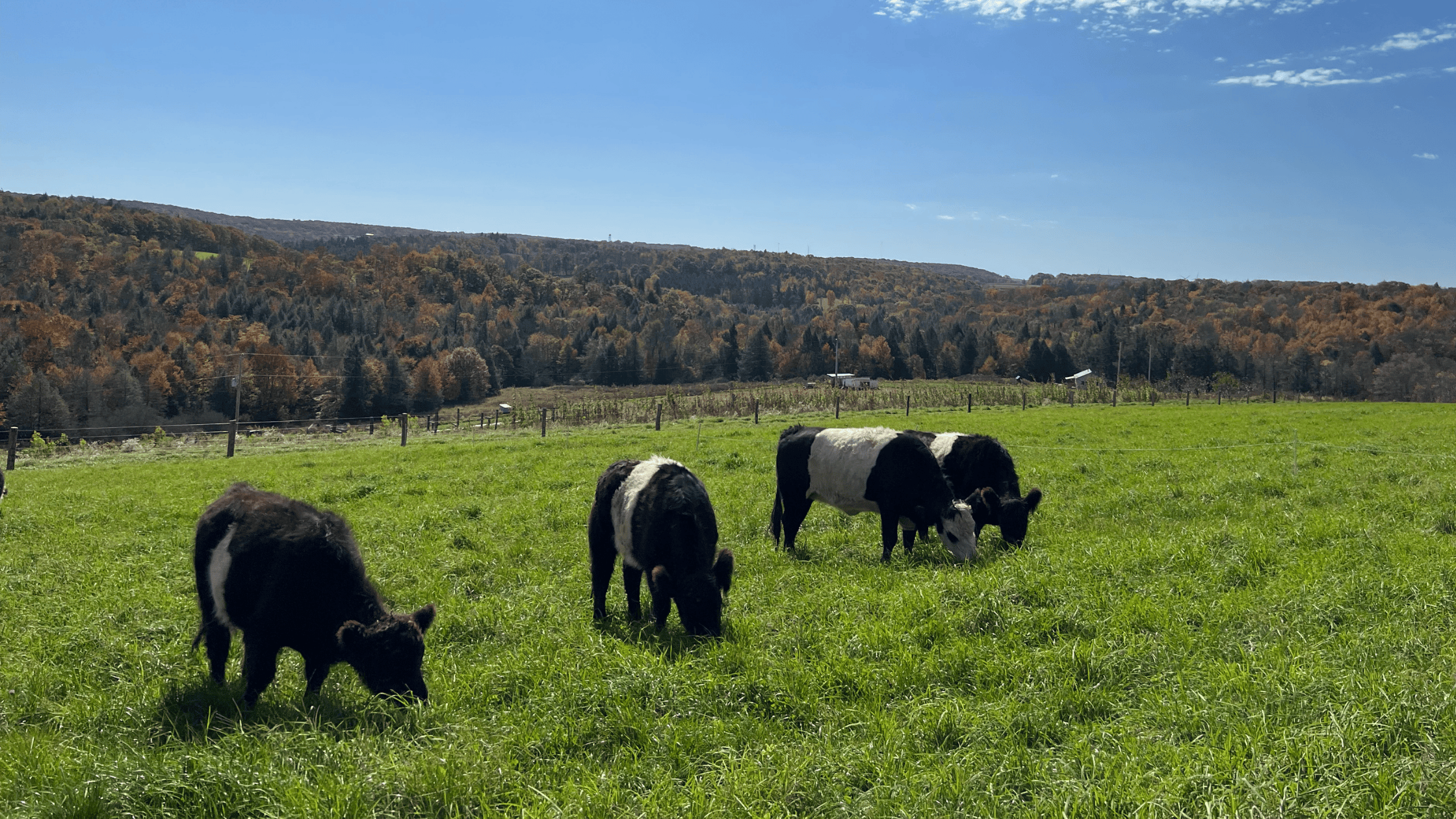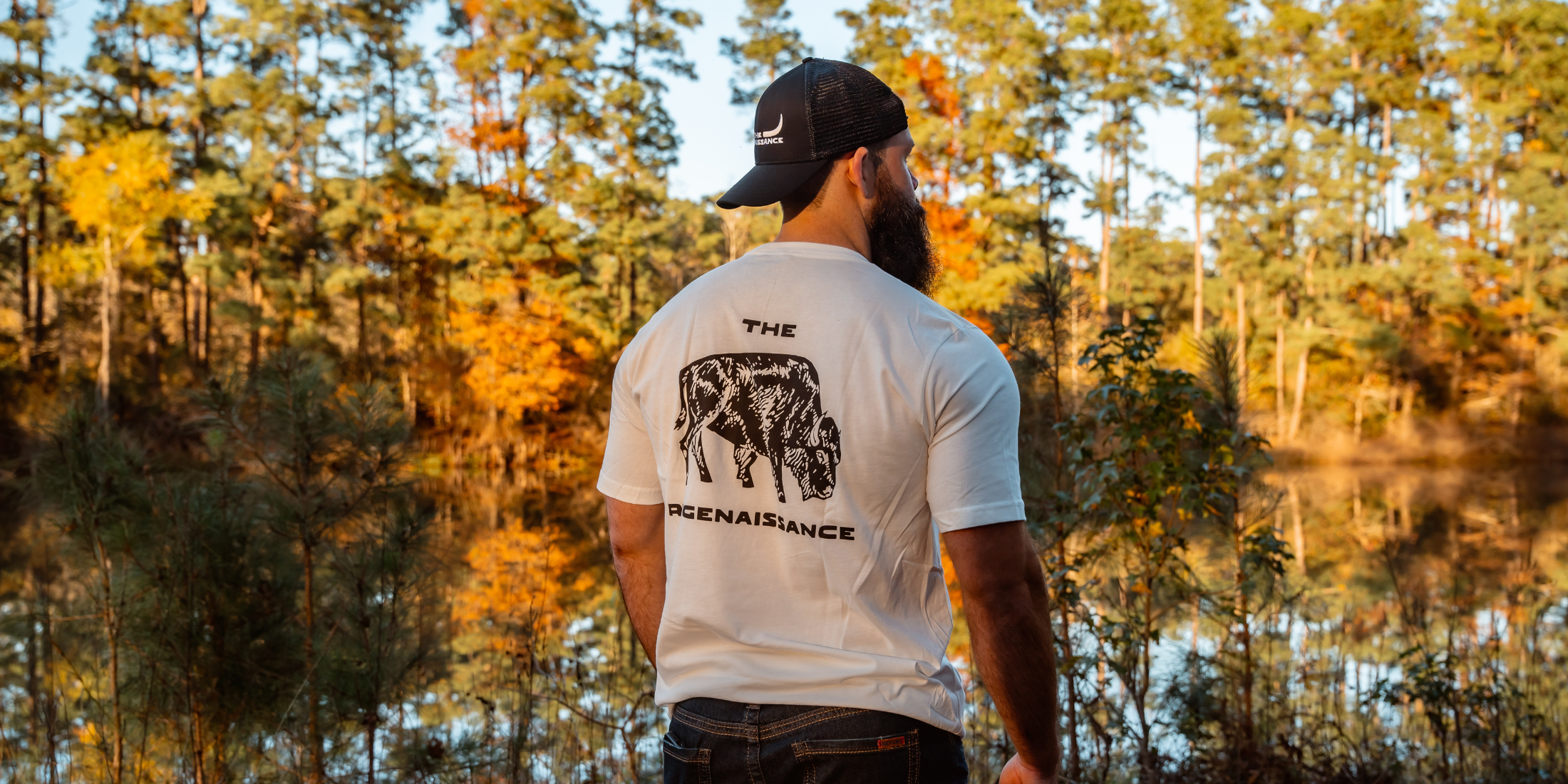Regenerative Agriculture, What is it and how you can learn more


Simply put, regenerative agriculture is aligning with how nature operates, rather than against it (conventional farming). It is not a one size fits all practice, rather you must understand the land you own along with nature & weather.
There are key principles that are normally practiced in regenerative agriculture such as:
Minimal tillage - tilling the land disturbs and kills the microbiology underground, thus destroying topsoil
Zero use of herbicides/pesticides/insecticides/fungicides - these toxic chemicals destroy microbiology underground and biodiversity above ground, deplete nutrients in the crops, worsen our health, and to make matters worse they don’t really work. Pests, fungi, and so on build resilience towards chemical sprays.
Adding crop diversity - monocropping is a major issue in the US. Drive anywhere in the midwest and all you see are cornfields. Go to any forest in the world, do you ever see just one species of plant? No, because that’s now how nature works. Monocropping depletes the soil & since there isn’t biodiversity, any small pest or fungi can ruin everything. What happens then? Spray chemicals, worsening the environment.
Integrate livestock - livestock eat the plants and grass and in return nourish the soil with their nutrient-rich manure, which boosts microbial activity underground & protects the soil.
List of Resources To Get Started
Documentaries:
- Biggest Little Farm
- Burned the Movie
- Kiss the Ground
- Uncommon Ground
- Roots So Deep
- Farmer's Footprint
- A Life on Our Planet: My Witness Statement
- Fantastic Fungi
- Honeyland The Pollinators
- Before the Plate
- Sacred Cow
- Clarkson's Farm
- To Which We Belong

Books:
Dirt to Soil
City Chicks
Defending Beef
The CAFO Reader
Holistic Management 3rd Edition
The Unsettling of America
Sacred Cow
Cows Save the Planet
The Soil Will Save Us
Grass, Soil, Hope
Growing a Revolution
For the Love of Soil
Call of the Reed Warbler
Any book by Joel Salatin
Dirt The Erosion of Civilizations
What Your Food Ate
Gaining Ground
Gaia's Garden
The Worst Hard Time
A Bold Return to Giving a Damn
Braiding Sweetgrass
The Regenerative Grower's Guide to Garden Amendments
Quality Agriculture: Conversations About Regenerative Agronomy
Plowman's Folly
The World According to Monsanto

YouTube:
Savory Institute
Carbon Cowboys
Allan Savory
Joel Salatin
Gabe Brown
Greg Judy
Kiss the Ground
Graeme Sait
Search regenerative agriculture - there are so many amazing accounts showing their day-to-day work, explaining different methods, diving into the business aspects, etc.

Podcasts:
- The Regenaissance Podcast
- Meat Mafia
- Down to Earth
- Discover Ag
- Ground Work
- Regeneration Rising
- The Thriving Farmer Podcast
- Regenerative Agriculture Podcast by John Kempf
- Joe Rogan: Joel Salatin, Will Harris episodes

Getting Your Hands Dirty
The best way by learning regenerative agriculture is by doing. Here are some ways to get hands-on experience.
Visit farmer’s markets, and converse with the farmers/ranchers. Show your interest, ask questions about their operation, and want to visit/volunteer. You learn so much just by doing and observing
Google local ranches/farms and call them up. Similar to #1, just show your interest but be respectful. You can volunteer a weekend or just visit and have them show you around their property
WWOOF - World Wide Opportunities on Organic Farms. This is what I’m doing and will be doing for all of 2023. It is not paid, however, you get housing & food in exchange for your labor. This can be a good option because the length of stay depends upon the times requested from the owner and also you. It can be a day, weekend, week, or for me, 2-3+ months at a time.
Quivira Coalition - they apprenticeships where you are placed with a mentor and work over an 8-month period
Greg Judy Grazing School - I have heard nothing but great things about Greg Judy’s program. He teaches how to work with livestock and rebuild your soil
Lastly, utilizing Google. There are so many programs, farms, and ranches out there looking for folks. ~1% of Americans work in agriculture, we need all the help we can get.
That’s it. I wanted to put together some helpful resources to get you started.
Thank you for reading,
Ryan
- Tags: ecosytem-restoration educational-resources holistic-grazing local-solutions nutritional-skeptics regenerative-agriculture soil-health sustainable-farming
0 comments


